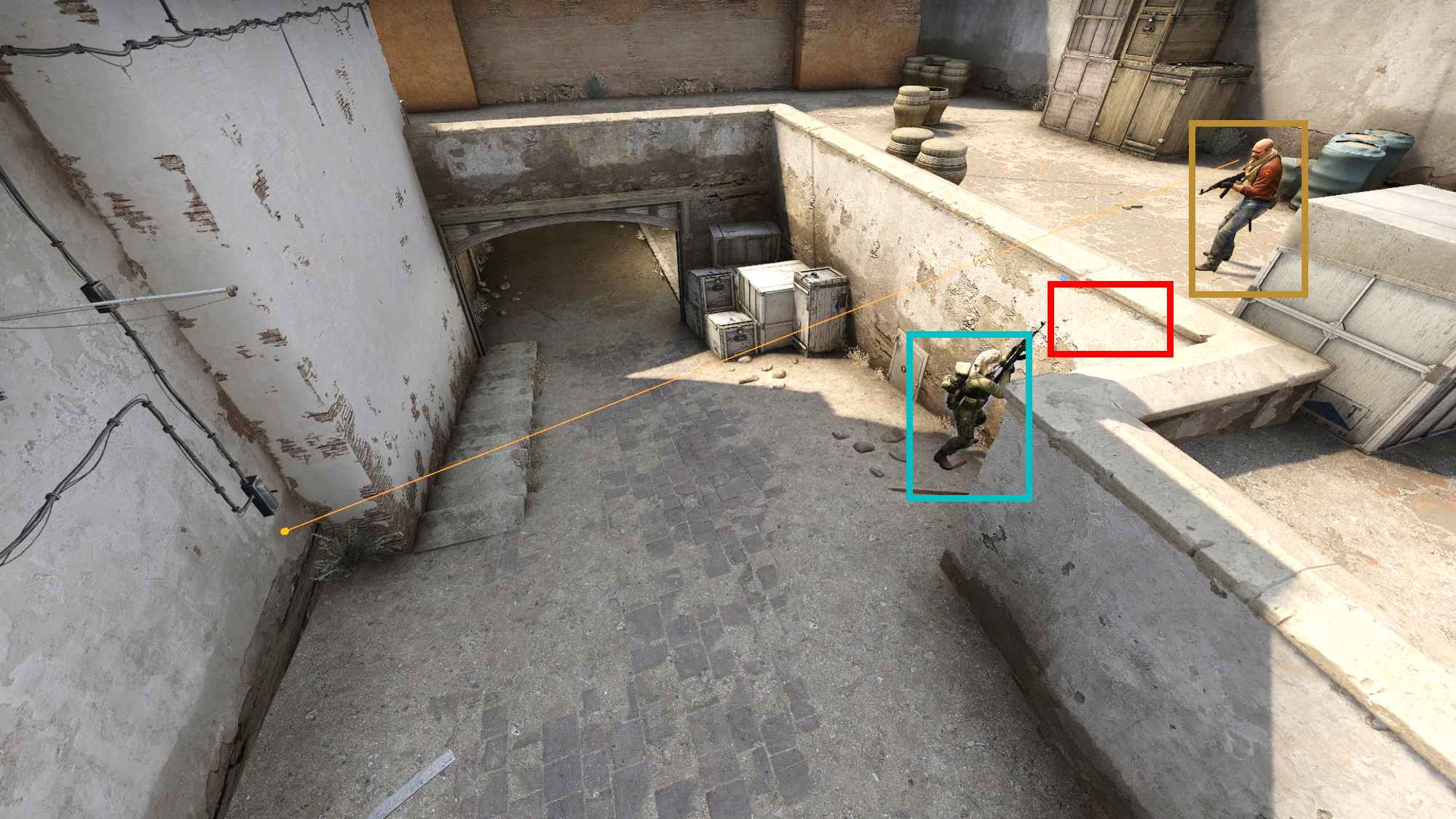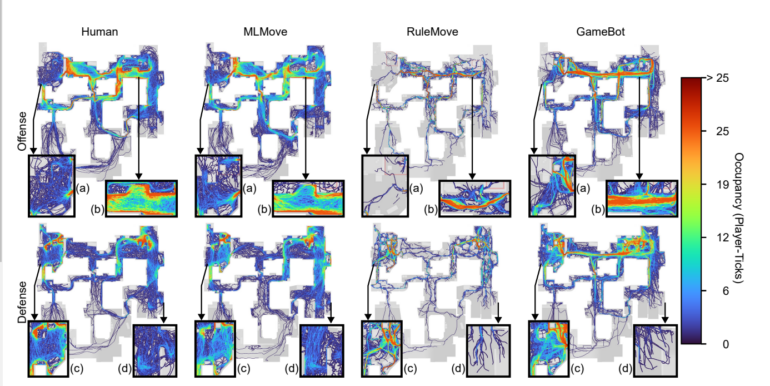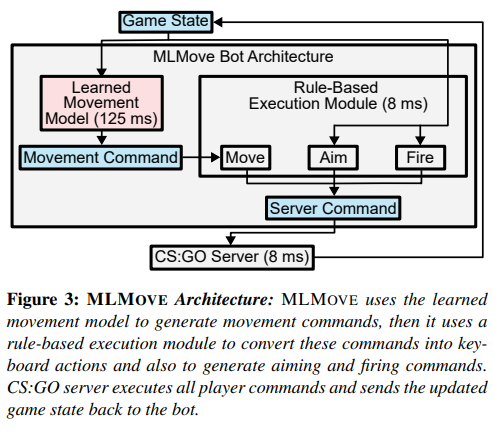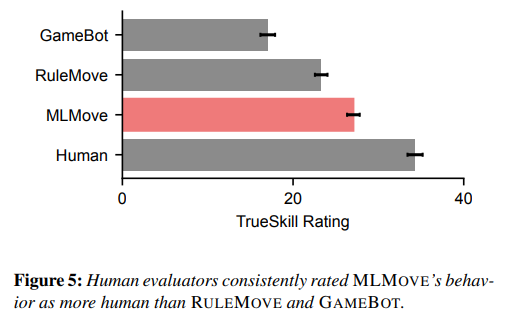MLMOVE: CS:GO bot moves like a professional player on de_dust2

Bots in games like Counter-Strike typically don't pose much of a challenge for pro players. But MLMOVE, an AI trained on over 100 hours of gameplay, could change that.
Researchers from Stanford, Activision Blizzard, Nvidia, University of Washington and Cornell have created a bot called MLMOVE that aims to replicate the movements of pro Counter-Strike: Global Offensive (CS:GO) players.
The team used imitation learning to train a transformer-based motion model on 123 hours of pro CS:GO gameplay.
In this video, three MLMove bots on offense perform a flank attack against three MLMove bots on defense. | Video: Durst et al.
Existing bots for multiplayer first-person shooters struggle to generate realistic, coordinated movements due to the complexity of human behavior and real-time gameplay demands. MLMOVE focuses on human-like movements in the "Retakes" mode on the de_dust2 map.

CSKNOW: data set from 17,000 hours of play
The researchers built a dataset called CSKNOW with game state info from over 17,000 rounds of pro CS:GO matches. This dataset trained the movement model to predict player movement commands based on the current game state. The model was then combined with rule-based aiming and shooting to create the full MLMOVE bot.

In a user study, human raters consistently judged MLMOVE's movements as more human-like than a rule-based bot and the standard CS:GO bot.
Quantitative analysis showed MLMOVE's behavior was more similar to human gameplay in map positioning, teamwork tactics, and kill/lifetime distributions.

The researchers also conducted quantitative analyses of self-play experiments, comparing the distribution of player positions, instances of teamwork and game outcomes between human gameplay and bot self-play.
The results indicated that MLMOVE's behavior was more similar to human gameplay than the baseline bots in terms of map occupation, use of flanking and spreading tactics, and distribution of kills and player lifetimes.
Will e-athletes soon be training on AI opponents?
MLMOVE demonstrates the potential of imitation learning for creating human-like AI in complex team games. In the future, this approach could lead to challenging AI opponents in competitive shooters and even be used to train esports athletes.
However, MLMOVE currently only works for one specific map and game mode in CS:GO. Further training would be needed to expand it to other games, maps and modes.
Further information and gameplay videos can be found on the project page.
AI News Without the Hype – Curated by Humans
As a THE DECODER subscriber, you get ad-free reading, our weekly AI newsletter, the exclusive "AI Radar" Frontier Report 6× per year, access to comments, and our complete archive.
Subscribe nowAI news without the hype
Curated by humans.
- Over 20 percent launch discount.
- Read without distractions – no Google ads.
- Access to comments and community discussions.
- Weekly AI newsletter.
- 6 times a year: “AI Radar” – deep dives on key AI topics.
- Up to 25 % off on KI Pro online events.
- Access to our full ten-year archive.
- Get the latest AI news from The Decoder.